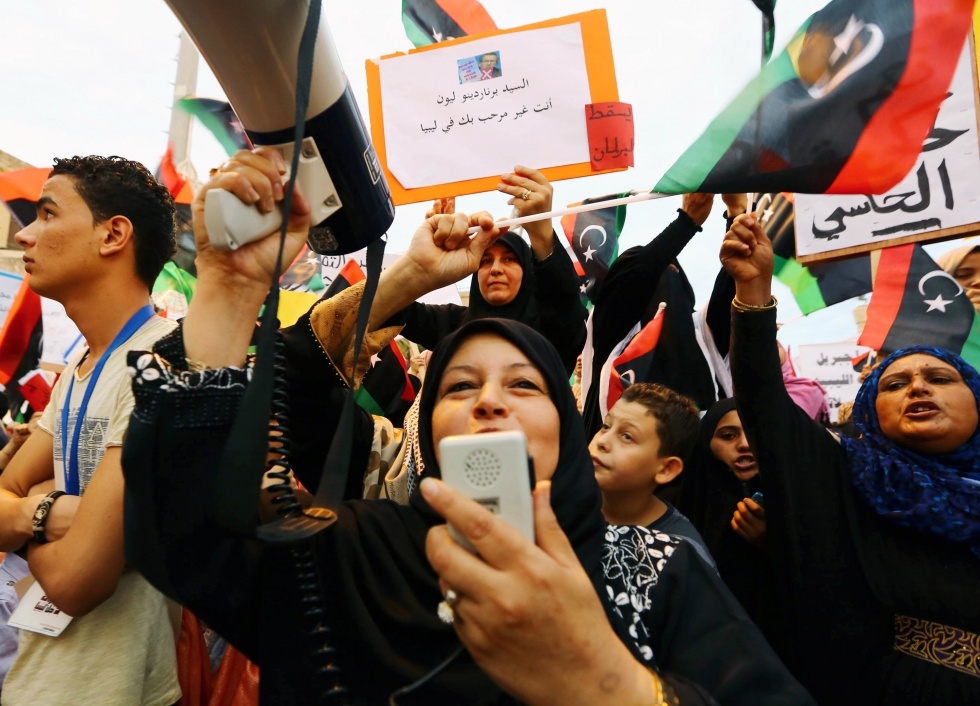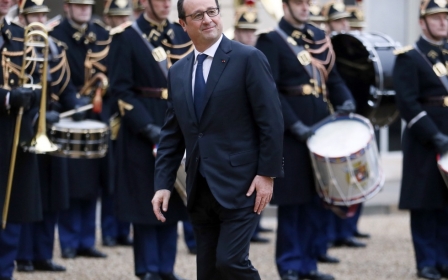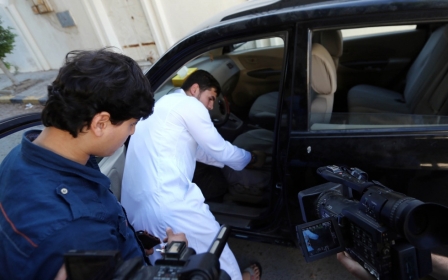Quo Vadis? Post-Benghazi Libya

A concerted disinformation campaign is being conducted to manufacture consent for military action against the government in Tripoli and the town of Misrata, which has been at the forefront of toppling the despotic Gaddafi dictatorship.
It is ironic that the very same people who called in NATO led airstrikes on satellite phones in 2011 are now being labelled as dangerous “Islamist militants”. Nothing could be further from the truth.
It looks like Western policymakers and legislators in the US and Europe, and the United Nations may all be misinformed, which in turn, could unleash catastrophic consequences for the people of Libya. Undoubtedly a protracted civil war in Libya will swell the numbers of refugees fleeing to Europe manifold.
Impact of Benghazi
To understand the difference between fact and fiction, I spent several days interviewing senior members of the government of Libya and Fajr Libya known in English as “Libya Dawn” (LD). My main subject on the side of the government was Mustafa Noah, Director of the Intelligence Service of Libya.
What was very clear throughout the interview is that both Noah and his supporters in the government in Tripoli and Libya Dawn are very much pro-US and pro-NATO who they say are "the saviours of Libya".
They are genuinely upset at the 2012 murder of US Ambassador, J. Christopher Stevens and his three colleagues in Benghazi. Ambassador Stevens is considered "an honorary Libyan who loved the country and its peoples" and who was "above all, a guest whose murder is sacrilege".
Noah said that the "perpetrators have been paying a heavy price for their crime that is being slowly but surely being exacted upon them". He stated categorically for the record that "extremist Takfiri Islamists are clearly rejected by Libya Dawn and the government in Tripoli".
In my four-hour interview, Noah made it clear that he was happy to talk about any issue, but did not want to be the focus or want it to appear as though he may be vying for power. This was something he came back to later on in the recorded conversation.
In fact, he spoke little about himself and his role, despite several attempts to steer the conversation in that direction.
The major point Mustafa Noah made is that the government in Tripoli and Libya Dawn (as it stands now) is/are in the process of trying to set up an inclusive government for all Libyans. His opinion is that opponents - specifically retired Libyan General Khalifa Haftar - were "concerned about consolidating their own personal power base".
There is mounting evidence that Haftar's power-grab is being carried out with support of Egypt's president, Abdul Fattah al-Sisi and his Saudi and Emirati backers. For example: the MiG-21 bombing runs from across the border, which are tantamount to a war crime for unprovoked and undeclared bombing of a neighbouring country.
And the recent purchase of six Sukhoi Su-30 warplanes delivered to Tobruk by Russian President Vladimir Putin's military (i.e. paid for allegedly by Egypt with funds that most probably originated from the Arab Gulf).
Mustafa Noah seemed genuine insofar as he always had a humble, well-composed, and thoughtful approach to any subject discussed.
He never framed anything in terms of his own accomplishments or involvement but in terms of the people and the revolution for change, stability and prosperity for all Libyans.
Noah was genuinely upset at the thought that someone-like Haftar, who is "working for his narrow personal interests and self-aggrandisement", could be successful in building a personal power base without regard for the people.
He said Haftar was "using the divisive methods he learned from his time as a crony in the Gaddafi dictatorship". Noah found the "thought of a ‘strong man' coming to power particularly offensive and abhorrent in light of recent history in Libya".
Mustafa Noah clearly has put a lot of trust in the ability of Libya Dawn, but he is not blindly committed to them. When I read a list of different militias, brigades, groups that composed Libya Dawn and asked about the character of specific militias, he painted them as all equally for the revolution and composed of good people.
Noah said any group that was not focused on the spirit of the revolution (i.e. anti-corruption, against arbitrary political violence, etc.) would not be a part of the future of a peaceful, stable and prosperous Libya.
His main focus is the Libyan people, creating better institutions, employment opportunities, social services, education, health services, etc.
Mustafa Noah talked about an "inclusive future" for Libya. He described the "old system of tribalism and manipulation by Gaddafi" and how the "mentality has to change in order for the country to progress". Regarding inclusivity in the future, Noah said that they are "open to people from the Gaddafi regime returning to public life once stability is created".
In fact, Mustafa Noah's senior advisor on anti-terrorism operations, who joined the conversation halfway through, was in the Gaddafi regime for 37 years. For Mustafa Noah, the government in Tripoli and Libya Dawn, "there is a place for people from the Gaddafi regime who could prove they were not stealing from the Libyan people or … involved in atrocities against the people".
Quo vadis Libya 2015?
What I discerned from my recent visit to Tripoli and Misrata is that the power-grab spearheaded by Haftar has more to do with Libya's oil and gas resources, which are coveted by their neighbours, rather than the red herring of “Islamist militants in Tripoli and Misrata” that is being trumpeted in the news media.
The Libya story in 2015 is about disinformation, lies and a power-grab in motion clandestinely supported by the Egyptians and their Saudi and Emirati counterparts. What will the US and the Europeans do?
Will they play along in the new “Great Game” or stop another Syria-like imbroglio unfolding where extremist Takfiri militant organisations like the Islamist State (ISIS or ISIL) can feed off and emerge to threaten peace and stability in the Mediterranean and beyond?
- Christopher Occhicone is a New York-based US photojournalist who recently returned from Libya.
This article was originally published at IPS with its permission.
The views expressed in this article belong to the author and do not necessarily reflect the editorial policy of Middle East Eye.
Photo: A Libyan protester uses a megaphone during a rally in Tripoli's central Martyr's Square on September 26, 2014 in support of Libya Dawn (AFP)”
Stay informed with MEE's newsletters
Sign up to get the latest alerts, insights and analysis, starting with Turkey Unpacked
Middle East Eye delivers independent and unrivalled coverage and analysis of the Middle East, North Africa and beyond. To learn more about republishing this content and the associated fees, please fill out this form. More about MEE can be found here.





